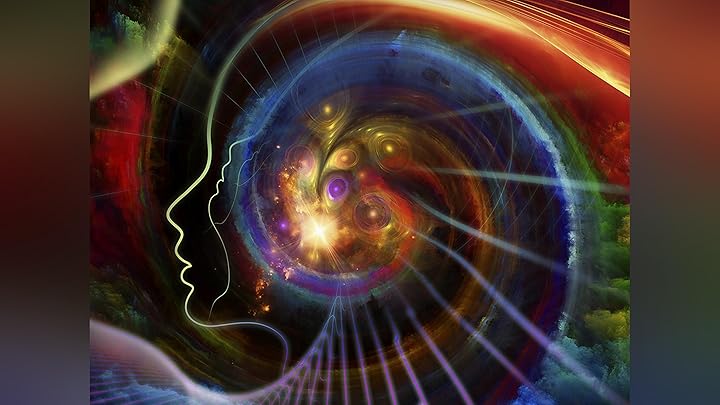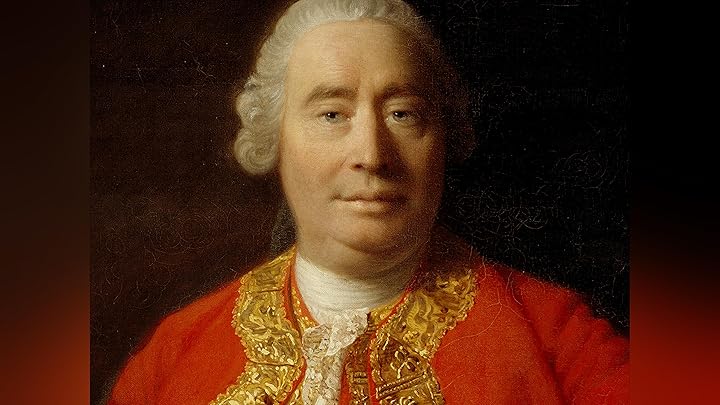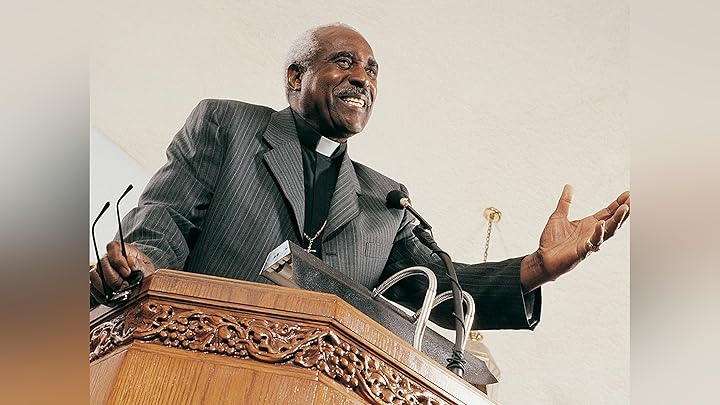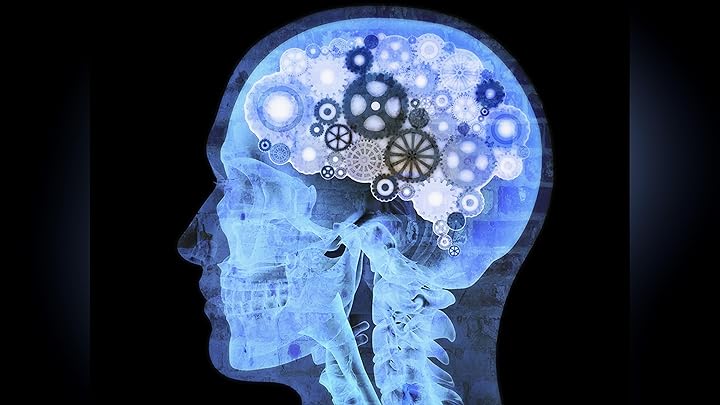

The Big Questions of Philosophy
剧集
第 1 季第 1 集 - How Do We Do Philosophy?
 2016年1月5日33 分钟Begin with the big question: What is philosophy? Start by exploring the kinds of problems that philosophy addresses, the way philosophy works, and the distinction between philosophy and opinion. Discover that philosophy is arguably the most important pursuit there is.免费试享 The Great Courses Signature Collection 或购买
2016年1月5日33 分钟Begin with the big question: What is philosophy? Start by exploring the kinds of problems that philosophy addresses, the way philosophy works, and the distinction between philosophy and opinion. Discover that philosophy is arguably the most important pursuit there is.免费试享 The Great Courses Signature Collection 或购买第 1 季第 2 集 - Why Should We Trust Reason?
 2016年1月5日31 分钟Hone your philosophical thinking by identifying the categories of fallacious reasoning that ensnare us all. Investigate examples of gut-thinking, confirmation bias, appealing to ignorance, the correlation fallacy, begging the question, and equivocation. Learn how to check your reasoning for flaws.免费试享 The Great Courses Signature Collection 或购买
2016年1月5日31 分钟Hone your philosophical thinking by identifying the categories of fallacious reasoning that ensnare us all. Investigate examples of gut-thinking, confirmation bias, appealing to ignorance, the correlation fallacy, begging the question, and equivocation. Learn how to check your reasoning for flaws.免费试享 The Great Courses Signature Collection 或购买第 1 季第 3 集 - How Do We Reason Carefully?
 2016年1月5日31 分钟Avoiding fallacious reasoning is just the beginning of philosophical thinking. Go deeper by studying the rules of deduction and induction. In the process, learn Aristotle's three axioms of logic, the difference between truth and validity, common mistakes in logical arguments, and why practically all scientific arguments are inductive.免费试享 The Great Courses Signature Collection 或购买
2016年1月5日31 分钟Avoiding fallacious reasoning is just the beginning of philosophical thinking. Go deeper by studying the rules of deduction and induction. In the process, learn Aristotle's three axioms of logic, the difference between truth and validity, common mistakes in logical arguments, and why practically all scientific arguments are inductive.免费试享 The Great Courses Signature Collection 或购买第 1 季第 4 集 - How Do We Find the Best Explanation?
 2016年1月5日33 分钟Explore the power of abduction, a form of induction also known as inference to the best explanation, that is used not only by philosophers, but also by doctors to make medical diagnoses and scientists to construct theories. Even Sherlock Holmes - the master of deduction - really practiced abductive inference.免费试享 The Great Courses Signature Collection 或购买
2016年1月5日33 分钟Explore the power of abduction, a form of induction also known as inference to the best explanation, that is used not only by philosophers, but also by doctors to make medical diagnoses and scientists to construct theories. Even Sherlock Holmes - the master of deduction - really practiced abductive inference.免费试享 The Great Courses Signature Collection 或购买第 1 季第 5 集 - What Is Truth?
 2016年1月5日31 分钟Now begin a section devoted to another big question: What is knowledge? Start with the problem of defining truth. Investigate three philosophical theories that attempt to pin down this elusive concept: pragmatism, coherentism, and the correspondence theory.免费试享 The Great Courses Signature Collection 或购买
2016年1月5日31 分钟Now begin a section devoted to another big question: What is knowledge? Start with the problem of defining truth. Investigate three philosophical theories that attempt to pin down this elusive concept: pragmatism, coherentism, and the correspondence theory.免费试享 The Great Courses Signature Collection 或购买第 1 季第 6 集 - Is Knowledge Possible?
 2016年1月5日31 分钟Having covered ways of gaining evidence and justifying belief in pursuit of knowledge, now ask: Is knowledge really possible? See what Plato had to say. Then delve into René Descartes' celebrated struggle with this problem, analyzing the strengths and weaknesses of his position.免费试享 The Great Courses Signature Collection 或购买
2016年1月5日31 分钟Having covered ways of gaining evidence and justifying belief in pursuit of knowledge, now ask: Is knowledge really possible? See what Plato had to say. Then delve into René Descartes' celebrated struggle with this problem, analyzing the strengths and weaknesses of his position.免费试享 The Great Courses Signature Collection 或购买第 1 季第 7 集 - What Is the Best Way to Gain Knowledge?
 2016年1月5日32 分钟Put empiricism to the test as the best way to acquire knowledge. Study the ideas of John Locke, George Berkeley, and David Hume, together with the response of Immanuel Kant, before settling on the most effective route to understanding the world as it is.免费试享 The Great Courses Signature Collection 或购买
2016年1月5日32 分钟Put empiricism to the test as the best way to acquire knowledge. Study the ideas of John Locke, George Berkeley, and David Hume, together with the response of Immanuel Kant, before settling on the most effective route to understanding the world as it is.免费试享 The Great Courses Signature Collection 或购买第 1 季第 8 集 - Do We Know What Knowledge Is?
 2016年1月5日32 分钟Address a famous problem concerning the nature of knowledge, posed by contemporary philosopher Edmund Gettier. Use different thought experiments to test the traditional definition of knowledge. Discover firsthand the bafflement and enlightenment that comes from doing philosophy.免费试享 The Great Courses Signature Collection 或购买
2016年1月5日32 分钟Address a famous problem concerning the nature of knowledge, posed by contemporary philosopher Edmund Gettier. Use different thought experiments to test the traditional definition of knowledge. Discover firsthand the bafflement and enlightenment that comes from doing philosophy.免费试享 The Great Courses Signature Collection 或购买第 1 季第 9 集 - When Can We Trust Testimony?
 2016年1月5日32 分钟In this section, put what you've learned to work by asking the big question: Can religious belief be justified? Start with Hume's argument that testimony can never justify a belief that a miracle has occurred. Analyze the flaws in Hume's reasoning, and think about whether his conclusion still holds.免费试享 The Great Courses Signature Collection 或购买
2016年1月5日32 分钟In this section, put what you've learned to work by asking the big question: Can religious belief be justified? Start with Hume's argument that testimony can never justify a belief that a miracle has occurred. Analyze the flaws in Hume's reasoning, and think about whether his conclusion still holds.免费试享 The Great Courses Signature Collection 或购买第 1 季第 10 集 - Can Mystical Experience Justify Belief?
 2016年1月5日32 分钟Look at the phenomenon of religious experiences, pondering whether such events justify belief. Find that practically all religions have religious experiences, but the beliefs they lead to can be radically different. Can "feeling the touch of God," like Jules in Pulp Fiction, justify religious belief?免费试享 The Great Courses Signature Collection 或购买
2016年1月5日32 分钟Look at the phenomenon of religious experiences, pondering whether such events justify belief. Find that practically all religions have religious experiences, but the beliefs they lead to can be radically different. Can "feeling the touch of God," like Jules in Pulp Fiction, justify religious belief?免费试享 The Great Courses Signature Collection 或购买第 1 季第 11 集 - Is Faith Ever Rational?
 2016年1月5日33 分钟Given that faith by its nature makes no claim to being logical, can it ever be considered rational? Learn that all of us unconsciously behave as if it is. What are our grounds for doing so, and how does this apply to religious faith? Your inquiry introduces you to famous arguments by Blaise Pascal, William Clifford and William James.免费试享 The Great Courses Signature Collection 或购买
2016年1月5日33 分钟Given that faith by its nature makes no claim to being logical, can it ever be considered rational? Learn that all of us unconsciously behave as if it is. What are our grounds for doing so, and how does this apply to religious faith? Your inquiry introduces you to famous arguments by Blaise Pascal, William Clifford and William James.免费试享 The Great Courses Signature Collection 或购买第 1 季第 12 集 - Why Is There Something Rather Than Nothing?
 2016年1月5日31 分钟Begin a series addressing the next big question: Does God exist? The most popular proofs appeal to God's existence as the best explanation for the universe's existence and nature. Test the cosmological and teleological arguments, using the tools of philosophy and the evidence of physics.免费试享 The Great Courses Signature Collection 或购买
2016年1月5日31 分钟Begin a series addressing the next big question: Does God exist? The most popular proofs appeal to God's existence as the best explanation for the universe's existence and nature. Test the cosmological and teleological arguments, using the tools of philosophy and the evidence of physics.免费试享 The Great Courses Signature Collection 或购买第 1 季第 13 集 - What Is God Like?
 2016年1月5日31 分钟Traditionally, if God exists, God is perfect - God is omniscient, omnipotent and omnibenevolent. See how these three attributes are likely inconsistent with each another. Focus in particular on the difficulties with St. Anselm's argument for a perfect God, and look at modern proposals for redefining our conception of God.免费试享 The Great Courses Signature Collection 或购买
2016年1月5日31 分钟Traditionally, if God exists, God is perfect - God is omniscient, omnipotent and omnibenevolent. See how these three attributes are likely inconsistent with each another. Focus in particular on the difficulties with St. Anselm's argument for a perfect God, and look at modern proposals for redefining our conception of God.免费试享 The Great Courses Signature Collection 或购买第 1 季第 14 集 - How Could God Allow Moral Evil?
 2016年1月5日32 分钟Now consider arguments against God's existence, the most common being the problem of evil. Explore various theological solutions that account for why God allows certain evils, like the holocaust. Does God have reasons we cannot understand? Examine the flaws in this argument.免费试享 The Great Courses Signature Collection 或购买
2016年1月5日32 分钟Now consider arguments against God's existence, the most common being the problem of evil. Explore various theological solutions that account for why God allows certain evils, like the holocaust. Does God have reasons we cannot understand? Examine the flaws in this argument.免费试享 The Great Courses Signature Collection 或购买第 1 季第 15 集 - Why Would God Cause Natural Evil?
 2016年1月5日32 分钟It is one thing for God to grant humans the freedom to do evil, but it's harder to understand the existence of natural evils such as earthquakes and plagues. Evaluate different approaches to this problem, including the suggestion that God exists but didn't create our universe.免费试享 The Great Courses Signature Collection 或购买
2016年1月5日32 分钟It is one thing for God to grant humans the freedom to do evil, but it's harder to understand the existence of natural evils such as earthquakes and plagues. Evaluate different approaches to this problem, including the suggestion that God exists but didn't create our universe.免费试享 The Great Courses Signature Collection 或购买第 1 季第 16 集 - Are Freedom and Foreknowledge Compatible?
 2016年1月5日32 分钟Do we have free will? This is your next big question. Begin with a close study of omnitemporalism - the idea that the future already exists and that God necessarily has foreknowledge of it. Taking this view, attempt to make sense of the notion that people have the power to act freely.免费试享 The Great Courses Signature Collection 或购买
2016年1月5日32 分钟Do we have free will? This is your next big question. Begin with a close study of omnitemporalism - the idea that the future already exists and that God necessarily has foreknowledge of it. Taking this view, attempt to make sense of the notion that people have the power to act freely.免费试享 The Great Courses Signature Collection 或购买第 1 季第 17 集 - Do Our Souls Make Us Free?
 2016年1月5日33 分钟Look at the problem of free will from the point of view of the soul, the conjectured seat of mentality that exists apart from the body. Discover that neuroscience suggests that the soul does not exist and also casts doubt on the concept of free will.免费试享 The Great Courses Signature Collection 或购买
2016年1月5日33 分钟Look at the problem of free will from the point of view of the soul, the conjectured seat of mentality that exists apart from the body. Discover that neuroscience suggests that the soul does not exist and also casts doubt on the concept of free will.免费试享 The Great Courses Signature Collection 或购买第 1 季第 18 集 - What Does It Mean to Be Free?
 2016年1月5日32 分钟Some philosophers, called compatibilists, argue that if we understand free will correctly, the idea that humans are free becomes defensible, leaving room for moral responsibility. Evaluate this stance, and close by considering the consequences of conceding that we don't have free will in the traditional sense.免费试享 The Great Courses Signature Collection 或购买
2016年1月5日32 分钟Some philosophers, called compatibilists, argue that if we understand free will correctly, the idea that humans are free becomes defensible, leaving room for moral responsibility. Evaluate this stance, and close by considering the consequences of conceding that we don't have free will in the traditional sense.免费试享 The Great Courses Signature Collection 或购买第 1 季第 19 集 - What Preserves Personal Identity?
 2016年1月5日32 分钟Spend time with the big question: Could there be an afterlife? First, ask what defines a person and how personal identity is preserved over time. Discover that many proposed answers fail, including the notion that personal identity is preserved by the soul.免费试享 The Great Courses Signature Collection 或购买
2016年1月5日32 分钟Spend time with the big question: Could there be an afterlife? First, ask what defines a person and how personal identity is preserved over time. Discover that many proposed answers fail, including the notion that personal identity is preserved by the soul.免费试享 The Great Courses Signature Collection 或购买第 1 季第 20 集 - Are Persons Mere Minds?
 2016年1月5日32 分钟Explore the possibility that personal identity is preserved by memory, as Locke contended, or by psychological continuity. Test these ideas in thought experiments involving the transporter from Star Trek and other intriguing scenarios.免费试享 The Great Courses Signature Collection 或购买
2016年1月5日32 分钟Explore the possibility that personal identity is preserved by memory, as Locke contended, or by psychological continuity. Test these ideas in thought experiments involving the transporter from Star Trek and other intriguing scenarios.免费试享 The Great Courses Signature Collection 或购买第 1 季第 21 集 - Are Persons Just Bodies?
 2016年1月5日33 分钟Could it be that you are the same person over time because you have the same body over time? Explore the implications of this view, which traces to the Judeo-Christian concept of the resurrection of the body in the afterlife. Consider biological objections.免费试享 The Great Courses Signature Collection 或购买
2016年1月5日33 分钟Could it be that you are the same person over time because you have the same body over time? Explore the implications of this view, which traces to the Judeo-Christian concept of the resurrection of the body in the afterlife. Consider biological objections.免费试享 The Great Courses Signature Collection 或购买第 1 季第 22 集 - Are You Really You?
 2016年1月5日32 分钟Close your inquiry into the afterlife by looking at new ways of defining personhood. According to perdurantism, a person is the sum total of an individual's life experiences and cannot be isolated to a particular time and place. Then question the very concept of a person - a move that may rule out the possibility of an afterlife.免费试享 The Great Courses Signature Collection 或购买
2016年1月5日32 分钟Close your inquiry into the afterlife by looking at new ways of defining personhood. According to perdurantism, a person is the sum total of an individual's life experiences and cannot be isolated to a particular time and place. Then question the very concept of a person - a move that may rule out the possibility of an afterlife.免费试享 The Great Courses Signature Collection 或购买第 1 季第 23 集 - How Does the Brain Produce the Mind?
 2016年1月5日33 分钟The next three inquiries ask: What is the nature of the mind? Start with the celebrated "hard problem" of consciousness: How does the brain produce the mind? Investigate two possible answers and explore why many philosophers consider both to be problematic.免费试享 The Great Courses Signature Collection 或购买
2016年1月5日33 分钟The next three inquiries ask: What is the nature of the mind? Start with the celebrated "hard problem" of consciousness: How does the brain produce the mind? Investigate two possible answers and explore why many philosophers consider both to be problematic.免费试享 The Great Courses Signature Collection 或购买第 1 季第 24 集 - What Do Minds Do, If Anything?
 2016年1月5日32 分钟Examine three more theories of the mind - property dualism, epiphenomenalism, and eliminative materialism - discovering that each has shortcomings. All of us feel that we have minds, so why is it so difficult to pin down what the mind is? Could the mind be an illusion?免费试享 The Great Courses Signature Collection 或购买
2016年1月5日32 分钟Examine three more theories of the mind - property dualism, epiphenomenalism, and eliminative materialism - discovering that each has shortcomings. All of us feel that we have minds, so why is it so difficult to pin down what the mind is? Could the mind be an illusion?免费试享 The Great Courses Signature Collection 或购买第 1 季第 25 集 - Could Machines Think?
 2016年1月5日33 分钟Push your exploration of the mind even further by looking at functionalism, which suggests that anything that functions like our brain has mentality. The implication is that, in principle, machines can think. Study some responses to this theory, including John Searle's thought experiment called the Chinese Room.免费试享 The Great Courses Signature Collection 或购买
2016年1月5日33 分钟Push your exploration of the mind even further by looking at functionalism, which suggests that anything that functions like our brain has mentality. The implication is that, in principle, machines can think. Study some responses to this theory, including John Searle's thought experiment called the Chinese Room.免费试享 The Great Courses Signature Collection 或购买